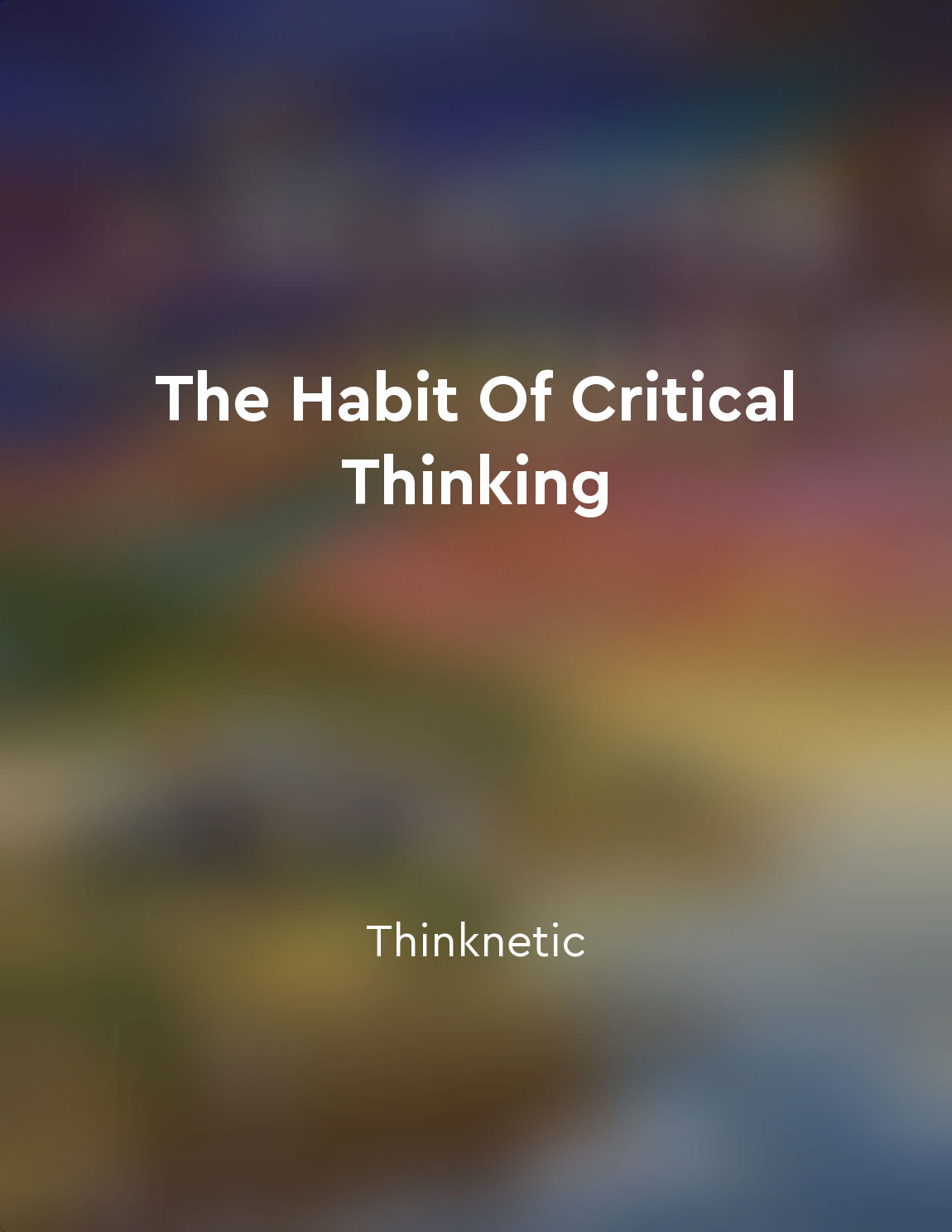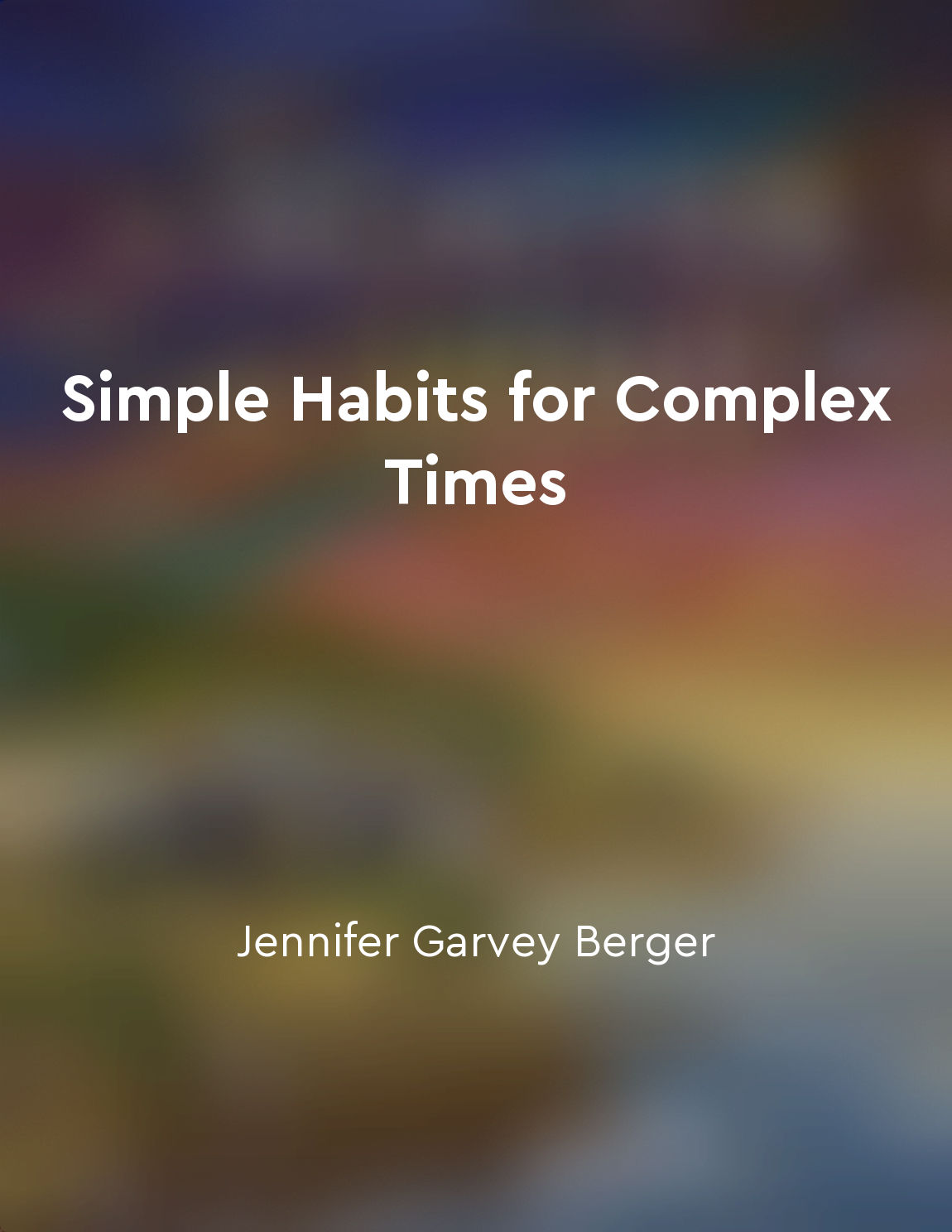Engaging students in reflective practices from "summary" of Developing Minds: A resource book for teaching thinking by Arthur L. Costa
Reflective practices involve helping students develop the ability to think about their own thinking. This process requires teachers to create opportunities for students to reflect on their learning experiences, both individually and collaboratively. By engaging in reflective practices, students can gain a deeper understanding of their own thought processes, beliefs, and values. This self-awareness is crucial for developing critical thinking skills and metacognition. One effective way to engage students in reflective practices is through the use of metacognitive strategies. Metacognition involves thinking about one's own thinking and learning processes. By teaching students metacognitive strategies, such as setting goals, monitoring their progress, and evaluating their performance, teachers can help them become more reflective learners. Encouraging students to ask themselves questions like "What did I learn from this experience?" or "How can I improve next time?" can promote metacognitive awareness. Another important aspect of engaging students in reflective practices is providing them with opportunities to engage in meaningful discussions with their peers. Collaborative reflection allows students to share their thoughts, perspectives, and insights with others, which can lead to deeper understanding and new insights. By fostering a supportive and respectful learning environment, teachers can encourage students to engage in open and honest conversations about their learning experiences. Teachers can also use reflective writing exercises to help students develop their reflective skills. By asking students to write about their learning experiences, thoughts, and feelings, teachers can provide them with a structured way to reflect on their learning. Reflective writing can help students clarify their thoughts, identify patterns in their thinking, and set goals for future learning.- Engaging students in reflective practices is essential for promoting deep learning and critical thinking. By creating opportunities for students to think about their own thinking, teachers can help them become more self-aware, metacognitive, and reflective learners. Through metacognitive strategies, collaborative discussions, and reflective writing exercises, teachers can support students in developing their reflective skills and becoming more effective learners.
Similar Posts

Emphasize precision
When it comes to critical thinking, one of the key concepts to keep in mind is the importance of precision. Precision refers to...
Our brains are constantly processing information
Our brains are constantly processing information. Whether we are aware of it or not, our minds are always at work, taking in th...

Reflecting on your progress and setting new goals is a continuous process
As you journey through your academic pursuits, it is crucial to take a moment to pause and reflect on how far you have come. Th...
Embrace challenges as opportunities for growth
When faced with challenges, instead of seeing them as obstacles, it is important to shift our perspective and view them as oppo...
Apply metalearning principles to learn more efficiently
Metalearning involves learning how to learn. By applying metalearning principles, you can become more efficient at mastering ne...
Effective teaching comes from the heart, not just the mind
Teaching is not just about transmitting information from one mind to another. It is a complex, nuanced process that requires a ...

Embrace diversity
Embracing diversity means recognizing and valuing the differences that exist among people. It involves understanding that each ...
Learning should be a continuous process of exploration and discovery
Learning is not a one-time event that happens in a classroom or training session. It is a lifelong journey of exploration and d...
Educational environments influence student behavior
Educational environments play a crucial role in shaping student behavior. The physical layout of a classroom, the rules and exp...
Emphasize the importance of resilience
Resilience is a vital skill that all successful individuals possess. It is the ability to bounce back from setbacks, challenges...

